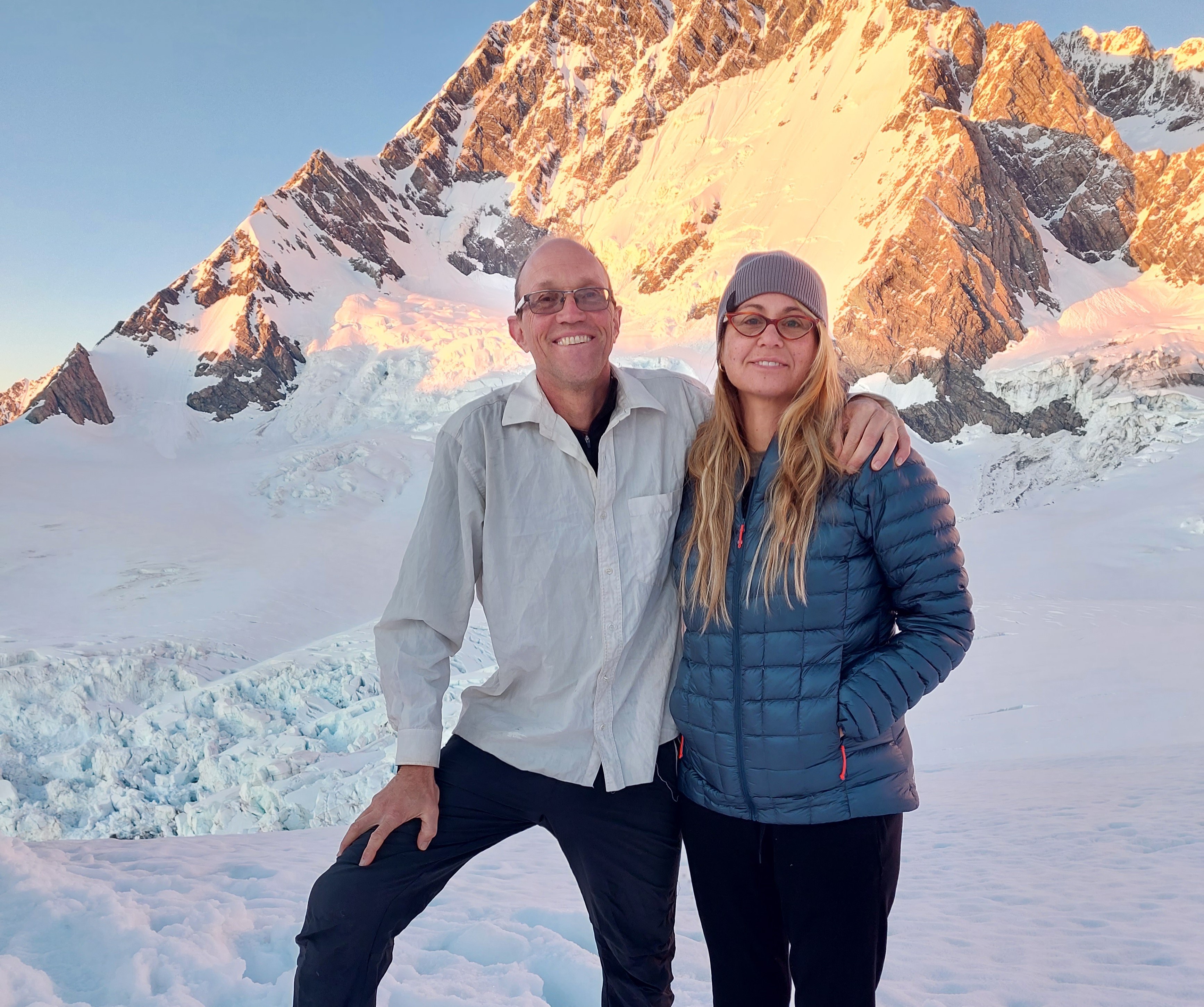Photo caption: UC researchers Chris North and Toni Torepe on their expedition on Mt Aoraki.
Te Whare Wānanga o Waitaha | University of Canterbury (UC) research co-leads Associate Professor Chris North and Senior Lecturer Toni Torepe (Ngāi Tahu) say human waste at Aoraki is a significant environmental, health and cultural problem.
“The New Zealand Alpine Club spends more money flying human waste out of high huts than they get in hut fees, so financially and environmentally it’s not sustainable,” says Faculty of Health Associate Professor North. “It’s also not culturally appropriate to leave the waste up there when you consider the relationship Arowhenua have with Aoraki.”
Torepe, from the Faculty of Education, says a key aspect of the project was the kaupapa Māori research focus. “I whakapapa to Arowhenua and the pūrākau of Aoraki is central to who we are as Kāti Huirapa, so as a rūnanga we have kaitiakitanga (guardianship) and are entrusted with looking after him. We talk about Aoraki as him, as a metaphor, because he is our ancestor and is central to our creation story, so you can see how the idea of someone leaving behind their human waste is problematic. For this project it was essential we included Arowhenua as well as mountaineers right from the start in addressing this issue.”
From research with Arowhenua about the idea of mountaineers climbing Aoraki, four key themes emerged: whakapapa and pūrākau (stories that are associated with Aoraki); tikanga and tapu (the right way to do things); desecration and utu (reciprocity); and hopes for a better future.
The research also included working with Dr Lynette McLeod to survey mountaineers from the New Zealand Alpine Club, with over 460 respondents. “The take home message was that there are barriers to carrying out human waste, such as awareness of available products and leakage, but most people were aware that solid human waste didn’t belong on the mountain,” says Associate Professor North. “Most of them also said they did not have a good understanding of mana whenua and Māori values and how that might impact their behaviours. They wanted to do the right thing – environmentally and culturally – but didn’t always know what that was.”
A week-long exchange of knowledge programme was also developed that involved four mountaineers and four Arowhenua whānau members journeying from Plateau Hut on Aoraki down to Arowhenua pā, visiting sites of cultural significance on the way. Based on the tuakana-teina model (older/more experienced sibling-younger/less experienced sibling), both groups had the opportunity to lead and share skills and knowledge at different times throughout the week.
One of the outcomes of the trip was the need for a practical, sustainable, and culturally appropriate product that would enable mountaineers to remove their waste. “There have been a lot of products developed around the world, but many of them are problematic,” says Associate Professor North. “So, we reached out to Dr Nick Emerson, Associate Head for UC School of Product Design, and a Master’s student is now working to develop a product solution that balances the needs of all stakeholders. Ideally next summer we will be piloting some of the products before releasing the final product to align with an education programme through Leave No Trace and the New Zealand Alpine Club.”
Torepe says the research also has other national and international applications. “Contextually there are significant implications and impact for other hapū or iwi and the geographic features that feature so strongly in their whakapapa and pūrākau, as well as globally for indigenous peoples who have similar views around sacred mountains and waterways.”
The research was funded by the UC Vision Matauranga Development Fund and UC Biosecurity Innovations Cluster, as well as the Tūpiki Trust.










